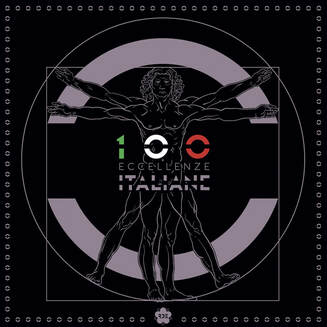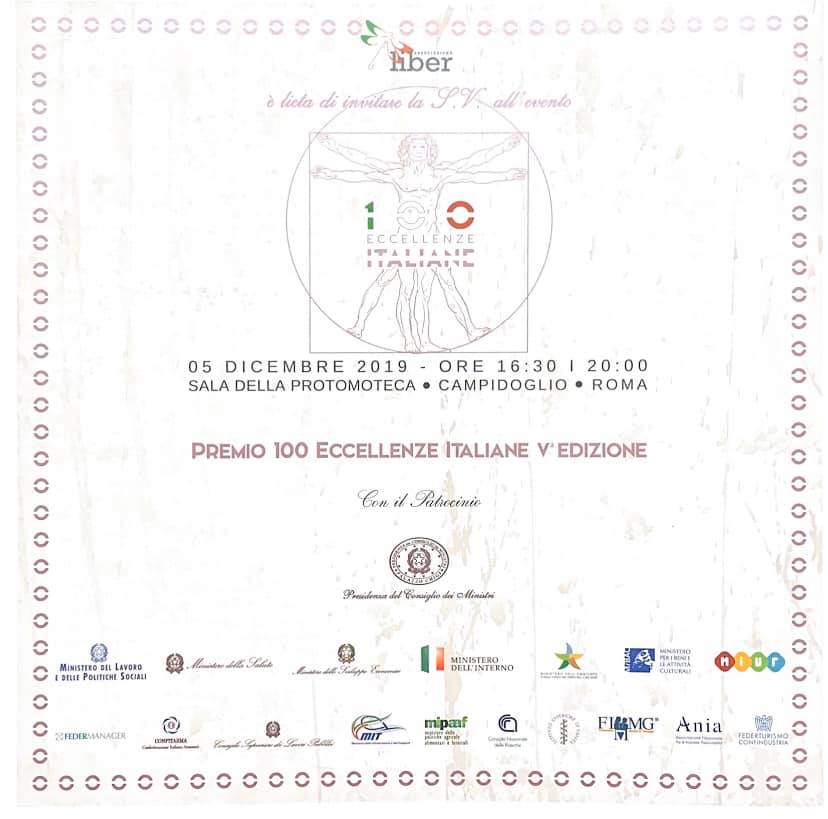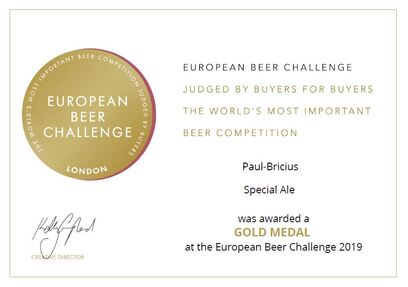Excellencies of each category and sector of a contemporary Italy, expressions of various kinds, the scent of tradition and history linked to innovation, creativity, audacity and talent to achieve high quality and designated by the Editorial Board with the superintendence of a Committee of Honor.
Honor Committee 100 Italian Excellence Award 5th Edition
1 Comment
The competition brings together the world’s leading beer buyers and the best beers from around the world as part of the dynamic and strategic beer market in the EU and the UK. During the evaluation session of the European Beer Challenge, each product undergoes a rigorous blind tasting process that allows newcomers to complete equally with the world’s leading brands. The winner is?
Judges included senior representatives from Whole Foods, 67 Pall Mall, Waitrose, Savoy Grill, Coop, Intercontinental, Roka, Brown's Hotel, The Arts Club e Bibendum.
More that 1000 breweries from 38 countries have fought head to heat. Hight-profile participants included ABInBev, Freedom Brewery, Waldhaus, Holba, Tommy's Brewing, Thornbridge, L.B.F. e Barcelona Beer Company. “We are so excited that our beers have masterfully perfomed at the European Beer Challenge 2019 and that the most important beer buyers have selected our productions among the best breweries in the world”, reported Fabrizio Traina, the master brewer of the Paul-Bricius brewery. “Now we are proud to show our European Beer Challenge medal – he concluded – to showcase that the Paul-Bricius craft beer is the winner of the Gold European Beer Challenge 2019 medal”. It has only fifteen years old, but it is the first of the 57 breweries in the region, created with self-built machinery and "a pioneering spirit", says Luca Traina.
An apartment breweryThe story of Paul-Bricius begins as a hobby in the garage of the Traina house. “My father Fabrizio was an agricultural doctor. Paolo produced fresh pasta in a pasta factory that still exists, while Luigi was a postal employee, now retired, "explains Traina. When the great-grandmother goes to live with her daughter, the large house in the center of Vittoria becomes the headquarters of the aspiring master brewers. "We built the machines ourselves, we made the cooking vats ourselves, because in the end everything started as a game, with the things we had," explains Traina son, who was thirteen at the time. "When things got more serious, we invested around 7,000 euros." The brand was born from the transformation of the names of Paolo Trainito (Paul) and Fabrizio Traina (Bricius, as an abbreviation of the Latin Fabricius). Little by little the bottler and the mechanical labeling machine arrived, and now the brewery is getting ready to leave the great-grandmother's house and the center of Vittoria. “The premises will be moved to the Sughero Torto district, to more suitable premises for processing, in the open countryside. Here we will have more space to organize events and tastings, as well as to make the experience of visiting the brewery live. " The challenge to the land of wineToday Paul-Bricius produces around 200 thousand bottles a year, even if Luca Traina does not unbutton his turnover. After studying law and obtaining the qualification of lawyer, he decided to devote himself to the family business, taking over the commercial part of the microbrewery. The evolution from hobby to business has not been easy. “We have overcome many difficulties, including bureaucratic ones. Since it is not an area that is familiar with beer, employees also had to study what concessions and licenses they had to give us. The other difficulty was related to the production of large quantities with the tools that were there. In addition, there was the difficulty of marketing craft beer, which no one knew, making it accept the price. " In a territory suited to wine such as Italy and Sicily, until fifteen years ago there was little tradition on beer. Important winery cellars are located in Vittoria, such as Romolo Buccellato or Feudo di Santa Teresa. Brewing here meant challenging the local mentality. "The crucial point is that, lacking tradition, there is no historical link with beer", underlines Traina. "We also feel a bit of the pioneer and we are proud of it." Today Paul-Bricius is no longer a rarity: there are now 57 microbreweries in Sicily Raw materialsPaul-Bricius created his brewery by purchasing materials and machinery from local retailers. The team of commercial representatives is made up of Sicilians. The microbrewery grows barley that ends up in the seven beers produced and has carried out several projects with the Enna Agricultural Development Agency to understand what effects a certain type of barley produces and its malt in beer. "We cultivated it, malted it and made the same recipe with three different malts: in this way we understood the difference of the raw material in beer". In Sicily the area most suited to the cultivation of cereals is that of Enna and Caltanissetta, where the master brewers had land that they had to abandon due to the distance. But at the beginning the malt of Paul-Bricius beers was the same as that used by the Messina Brewery in the time of the Faranda. An apparent example of territorial synergy, which the company does not care about. “But we couldn't use the same raw material as an industrial brewery. To differentiate ourselves, we looked for a higher quality raw material. By growing barley, we closed the supply chain. The only non-Italian thing that we introduce in our beer are hops: one part is produced in Sicily, the other is not. Some are foreign hops, others grown in Italy ". "Satisfied with the excise cut"The roots are still roots, even for beer in the land of wine. Vittoria is known for its Cerasuolo, the only DOCG from Sicily. The microbrewery produced a beer by inserting one third of red berried grape must and two thirds of barley must, grown in Sicilian soils. "Today the Paul-Bricius craft beers are present in Malta, Switzerland, leopard-like in Italy, on some NATO base in Italy, which counts as US soil," explains Traina. The increase in excise duty over the years has given the company some headaches. "But since July 2019 the rate has gone back to roughly the same level as when we started, with a 40 percent reduction for small breweries. So, having a production that stops below 10 thousand hectoliters, we are satisfied ".
|
The oldest in SicilyArchivi |






